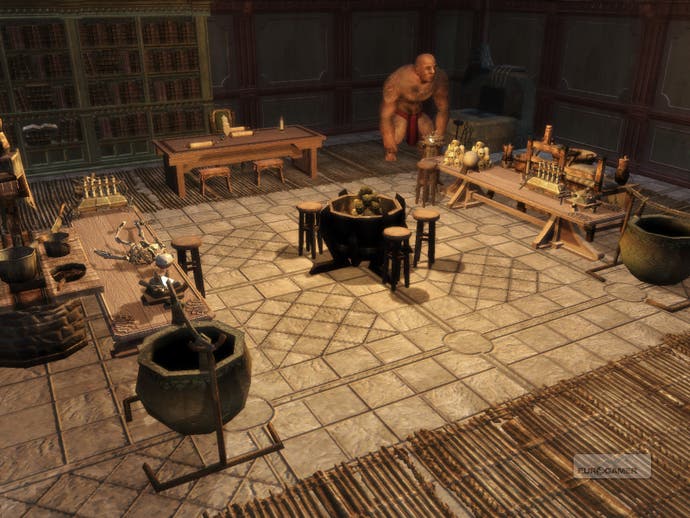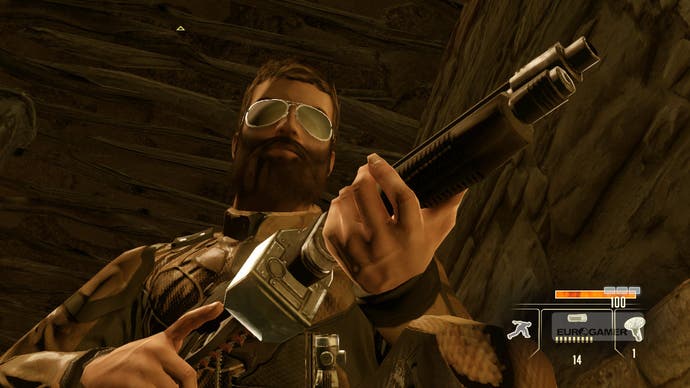Obsidian's Chris Avellone
Alpha top dog.
I think they're going to be cross with me no matter what I do, and I've learned to live with it as long as they provide me with detailed critiques, because past all the profanity they'll spit out, they've actually got some good information on why certain systems are broken, and which ones aren't. Those are actually worth paying attention to, so I value those guys.
Oh, yeah, sure. The two sites I usually follow are RPGWatch and RPGCodex. And there's one other site I follow, but it escapes me right now ...
[Silence.]

Well, I have a personal definition. Of the RPGs I've played recently, I'll be honest: I've been pretty much immersed in Fallout 3. But it seems to me that the most important parts of an RPG are that, in terms of all the character-building you can do in the opening screens, all those skill choices and background choices need to matter in the gameworld.
That may sound kind of self-evident, but there's a lot of game balance that needs to go into making sure that each skill, trait, and attribute score is valuable, and an RPG has to deliver on that. If you're going to give the player a chance to specialise in or improve a certain aspect of their character, there needs to be value for that in the gameworld.
The other thing that's important is that there has to be a lot of reactivity to the player's actions within the environment, either in terms of quests, faction allegiance, even physical changes in the environment. The player making an impact is incredibly important.
It comes down to this: depending on the rules for the gameworld, the player has to be given a series of options on how to solve each problem. For Fallout, for example, it was easy: you always want to know that, as the bare minimum, you have a Combat Boy, Stealth Boy, and Speech Boy option for solving each quest. And then you go into consequences: for each option, what's the reactivity in the world and possible long-range consequences, and how does it factor into the endgame? Or does it not factor into the endgame at all, or just the area, or just the one person who gave you the quest? That's our process.

There's a lot of discussion about what constitutes an RPG, as you said. And the defining game, for me... Well, it's System Shock 2. Let me explain: System Shock 2 was almost a role-playing game. Almost. They had the character stuff down, the skill stuff down, but you never really made a choice, in my opinion. The ending was set; your path was set. If, at one point, there was a moment where you could've made one decision that changed the ending, that would've made it a barebones role-playing game, and a good one.
Well, yeah, it did have a meaningful choice. Granted, it was the two endings, which may be a bit low compared to Fallout standards where you get a ton of 'em, but at the same time, you're allowed to make a basic moral choice, and I still think that's important for an RPG.